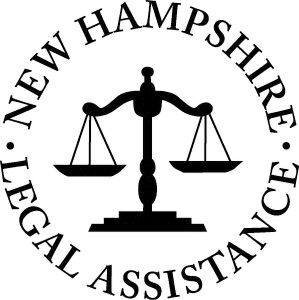Housing Discrimination Based on Sexual Orientation or Gender Identity in New Hampshire
Lesbian, gay, bisexual, transgender, and queer (LGBTQ) people may face discrimination when seeking to rent an apartment, buy a home, or secure financing for a home. In New Hampshire it is illegal to discriminate based on sexual orientation and gender identity when providing housing, whether it’s renting or purchasing a home.
Recently, President Joe Biden issued an executive orderdirecting all federal agencies to extend protections against discrimination based on sex to include discrimination based on sexual orientation, gender identity, and gender expression. In response, the U.S. Department of Housing and Urban Development (HUD) announced it would enforce the Fair Housing Act in such a way as to prohibit discrimination on the basis of sexual orientation and gender identity.
If you suspect you have been the victim of housing discrimination because of your gender identity, you can file a complaint with HUDor the New Hampshire Commission for Human Rights. You can also find more information and get help filing a complaint through the New Hampshire Legal Assistance Fair Housing Project, which seeks to help victims of housing discrimination get the protections and remedies they deserve.
What Is LGBTQ Housing Discrimination?
Housing discrimination based on sexual orientation or gender identity can include things like denying housing, charging a higher rate for housing, or eviction.
A 2013 studyby the U.S. Department of Housing and Urban Development showed that same-sex couples experience discrimination when responding to advertised rental housing in cities across the country, finding that heterosexual couples were favored over same-sex couples by 16%. For transgender people, housing discrimination is even more prevalent. According to the 2015 U.S. Transgender Survey, nearly one quarter of transgender people reported experiencing housing discrimination within the past year because of their gender identity.
Lesbian, gay, bisexual, transgender, and queer (LGBTQ) people may face discrimination when seeking to rent an apartment, buy a home, or secure financing for a home. In New Hampshire it is illegal to discriminate based on sexual orientation and gender identity when providing housing, whether it’s renting or purchasing a home.
A study of state-reported data on housing discrimination complaintsin 2016 found a similar number of complaints were filed reporting discrimination based on sexual orientation or gender identity, compared with complaints based on race or sex discrimination.
A Welcome Change in Policy
Up until Biden’s executive order, there was no federal law that consistently protected LGBTQ individuals from housing discrimination. As we noted, New Hampshire does protect against housing discrimination based on sexual orientation and gender identity.
The Fair Housing Act, originally passed in 1968, prohibits housing discrimination on the basis of race, color, national origin, religion, disability, familial status, and sex. In 2012 and again in 2016, HUD implemented and built upon the Equal Access Rule which protects against discrimination based on sexual orientation and gender identity in HUD-funded programs. This most recent order goes even further than the HUD rule, including protections in housing that is not HUD funded.
This order stems from a 2020 Supreme Court decision in the case of Bostock v. Clayton County. The Court ruled that “an employer who fires an individual merely for being gay or transgender violates Title VII” of the Civil Rights Act of 1964, which prohibits sex discrimination in employment.
The order is also retroactive, which means it protects against discrimination that occurred dating back to January 20, 2020.
Other Kinds of LGBTQ Housing Discrimination and What to Do If You’re a Victim
Unfortunately, there are other forms of housing discrimination that could impact LGBTQ people that are directly or indirectly related to their sexual orientation or gender identity. Here are two examples from the U.S. Department of Housing and Urban Developmentof LGBTQ housing discrimination that would be illegal under the federal Fair Housing Act:
● A transgender woman is asked by the owner of her apartment building not to dress in women’s clothing in the common areas of the property. This may violate the Fair Housing Act’s prohibition against sex discrimination, which includes discrimination based on non-conformity with gender stereotypes.
● A gay man is evicted because his landlord believes he will infect other tenants with HIV/AIDS. This may violate the Fair Housing Act’s prohibition against disability discrimination, which includes discrimination against people who have or are perceived to have HIV/AIDS.
If you experience housing discrimination, the Fair Housing Project may be able to help you file a complaint and represent you as you seek a remedy. For more information about our advocacy services, visit our websiteor call 1-800-921-1115.

